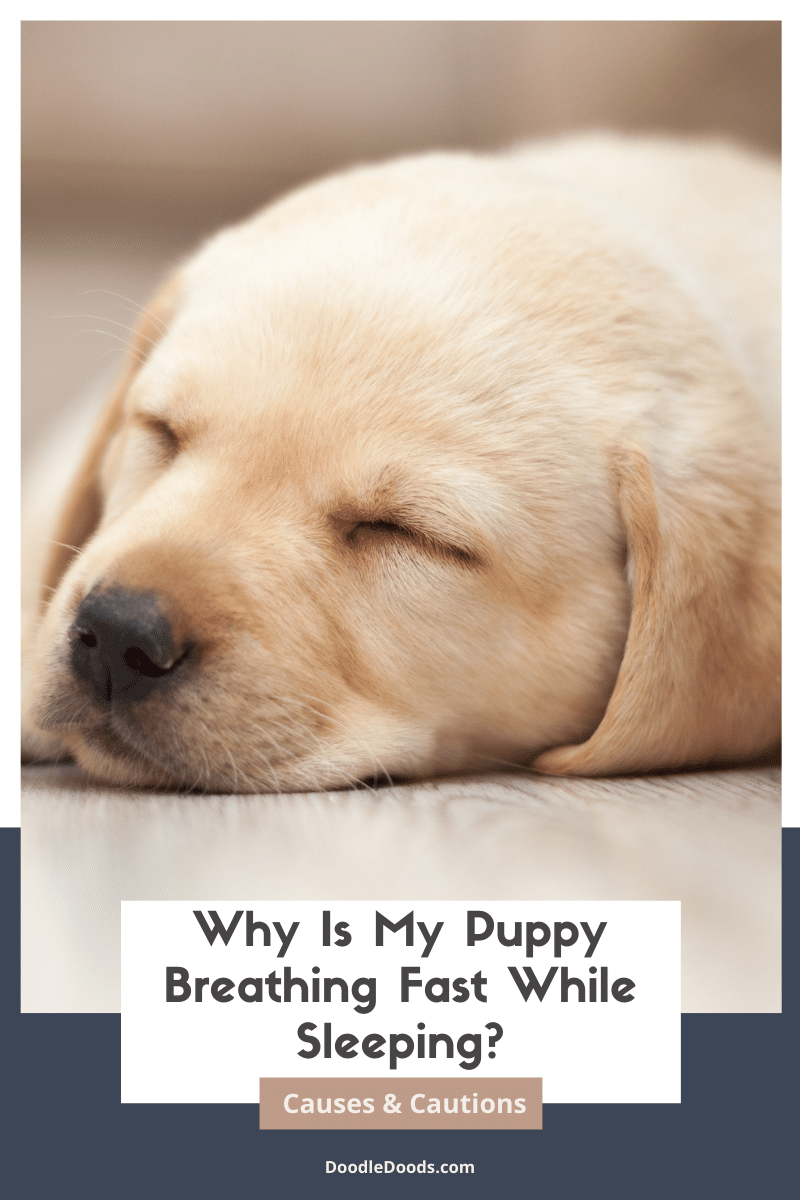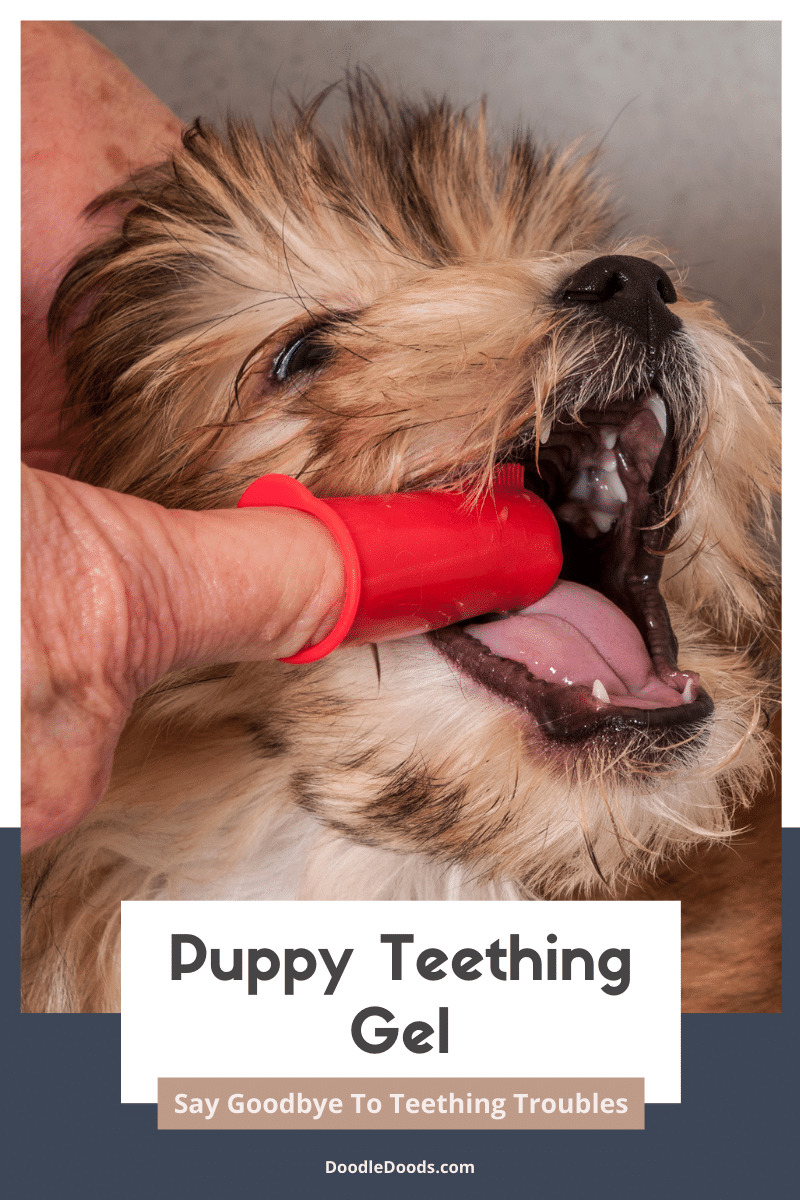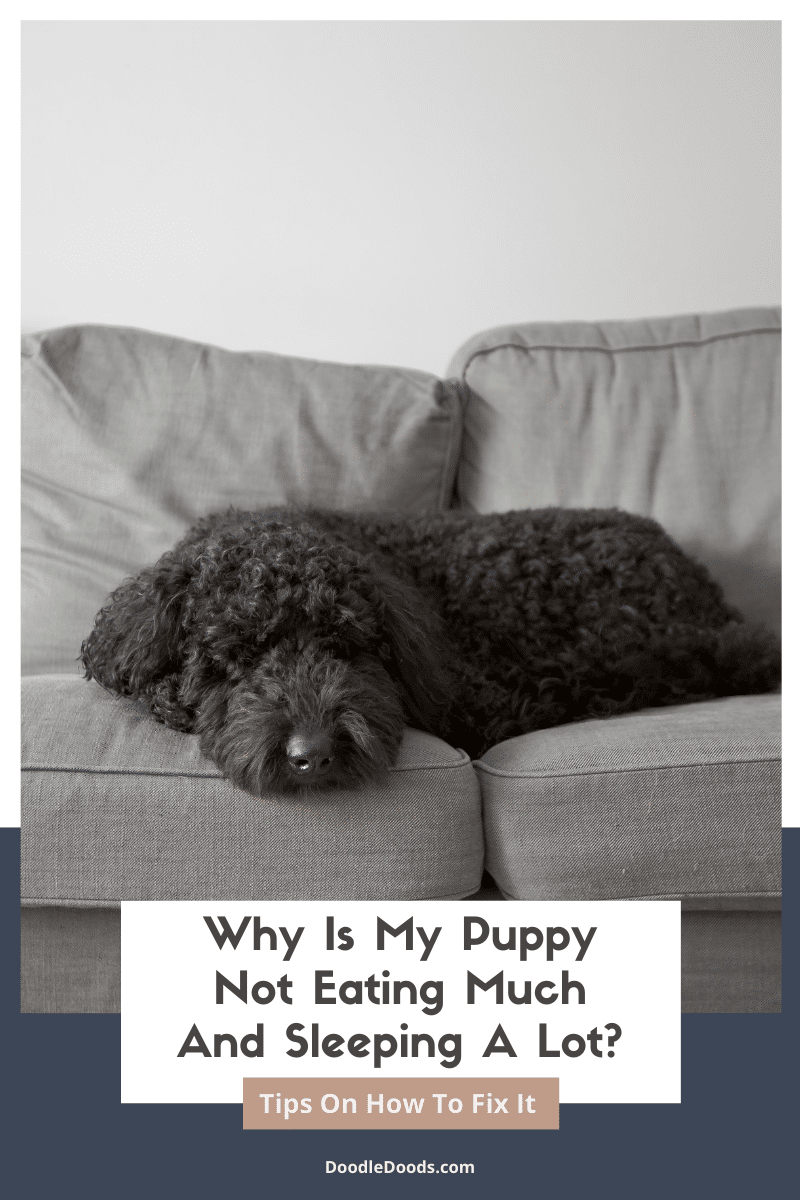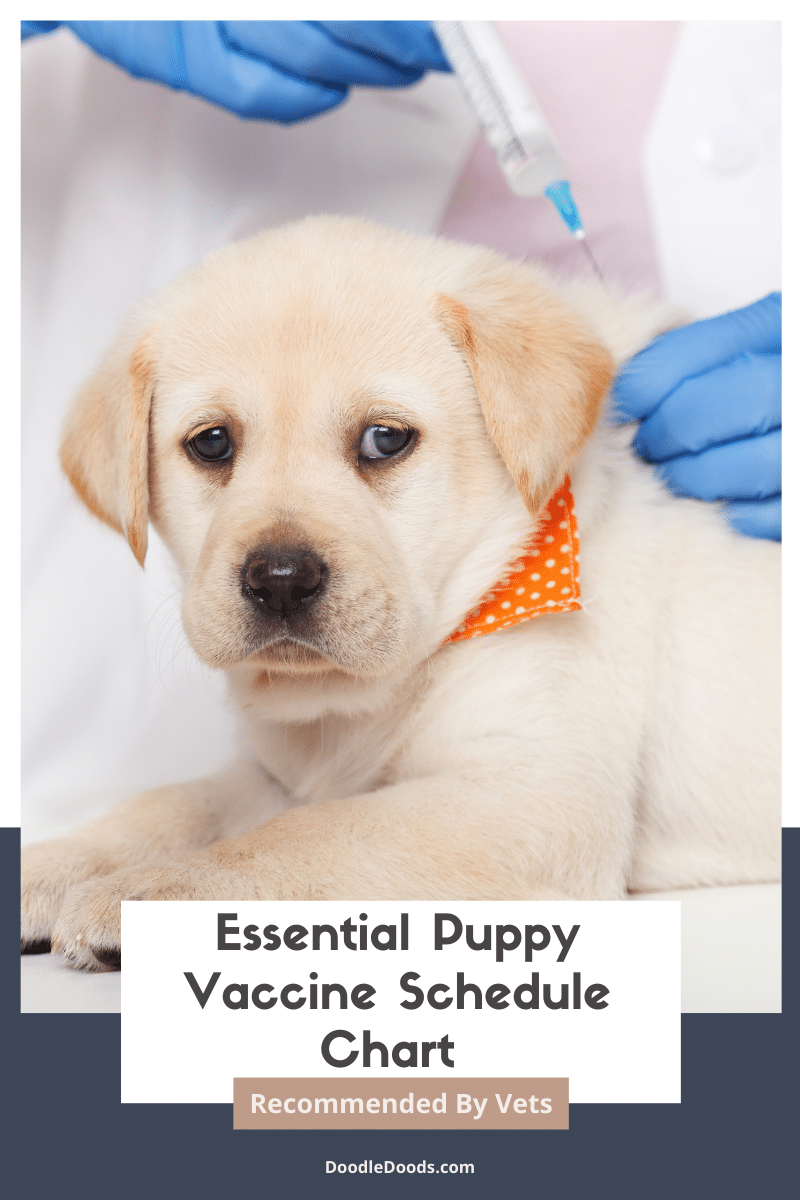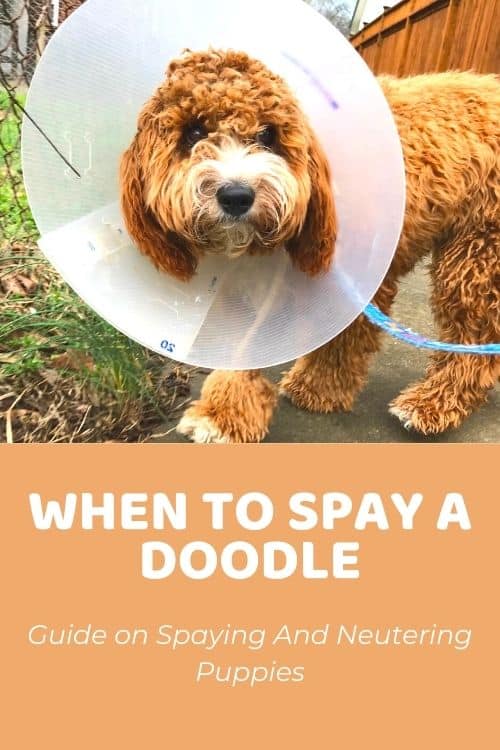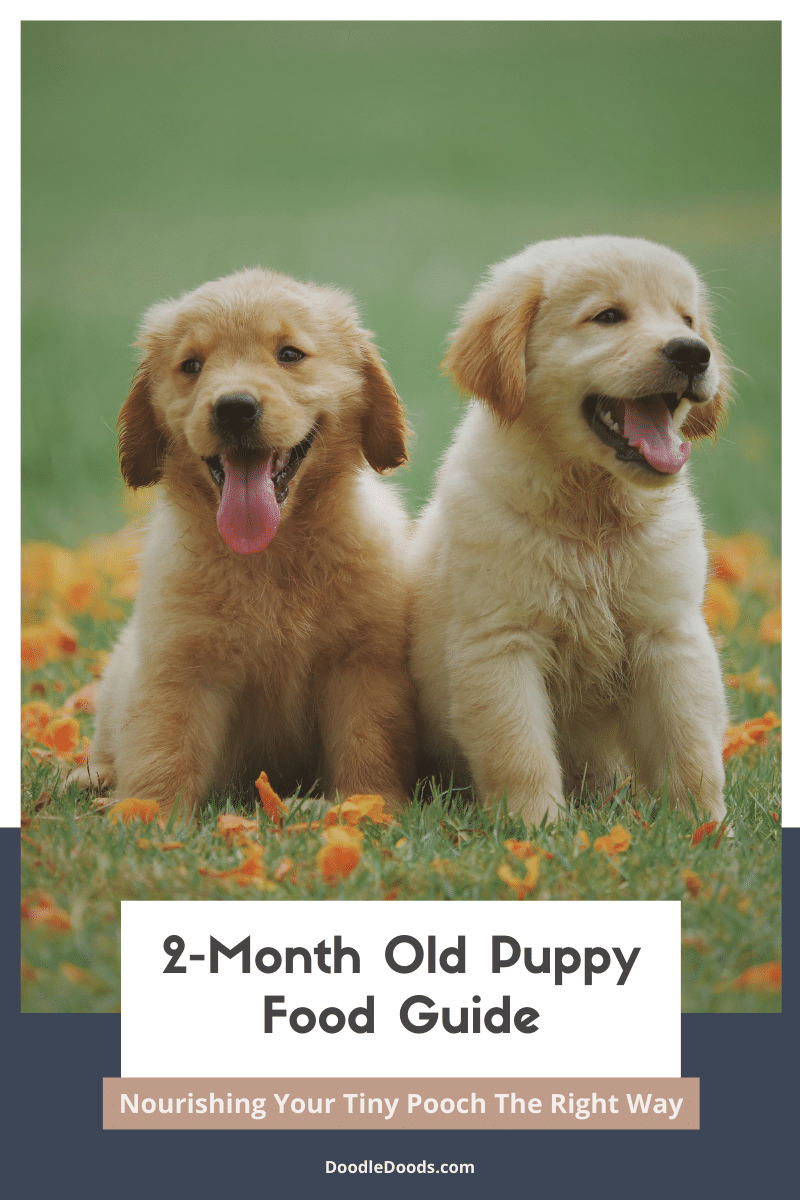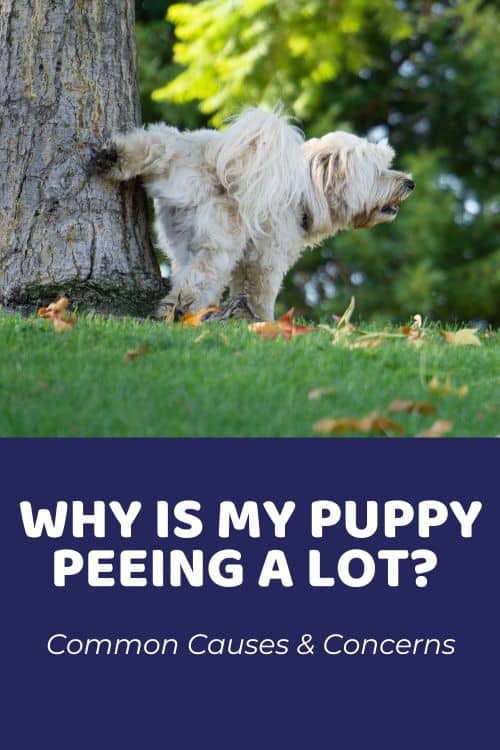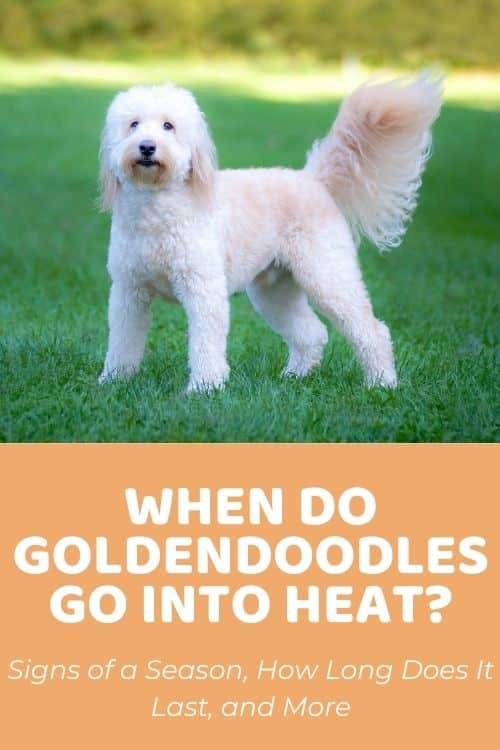If your puppy is breathing fast while sleeping, you might become a bit worried – as it’s so often the case with new pet owners. It could be due to completely harmless reasons, or it might indicate that there’s something going on with your pup’s health that requires immediate medical attention. In this article, we’ll find answers to some of the most common questions like: do puppies breathe fast when sleeping? Is it normal for puppies to breathe fast? Whether your puppy is breathing fast while sleeping or when they’re awake, here you’ll find answers to all of your questions and concerns on this topic.
Table of Contents
- Is It Normal For Puppies To Breathe Fast?
- Why Is My Puppy Breathing So Fast?
- Puppy Breathing Fast: Should You Be Alarmed?
- How Many Breaths Should A Puppy Take Per Minute?
- How Can You Count Your Puppy’s Breathing Rate?
- Why Is My Puppy Breathing Fast While Sleeping? Frequently Asked Questions
- Puppy Breathing Fast While Sleeping: Final Thoughts
Is It Normal For Puppies To Breathe Fast?
Any puppy owner knows that the first few months with a new puppy are a scary time. You’ve just brought your new pup home, they’re learning all crucial skills and behaviors, and becoming adjusted to their new home and family.
During this time, puppies are also extremely fragile and receptive to everything. Taking care of a young dog is obviously going to stir up some emotions and bring out your natural instincts of care and constant worry. For many people, puppies’ fast breathing may raise a concern, and it’s completely understandable.
So, is it normal for puppies to breathe fast? What if your puppy is breathing fast while sleeping? To determine whether or not your puppy is breathing too fast, we first need to understand what the normal breath rate is.
For puppies, anything from 15 to 40 breaths per minute is considered normal. In contrast, adult dogs tend to take less breaths per minute, usually between 10 and 30. If your puppy is breathing faster than the 15 to 40 range for prolonged periods of time, it’s time for a vet visit.
Why Is My Puppy Breathing So Fast?
Most of the time, when a puppy is breathing fast while sleeping, it’s simply a normal sign of REM sleep. REM stands for rapid eye movement and this is also the time when both dogs and humans dream. Needless to say, it’s only natural for all that shut-eyed action to manifest in faster breathing, too.
Although puppies generally breathe faster than adult dogs, there are a few other reasons why your puppy may be breathing faster than usual. Fortunately, for the majority of the time, puppies breathe faster because of normal causes. If it’s not a constant thing, you probably don’t have to worry about it.
On the other hand, some common causes can also become dangerous, if left untreated. For this reason, it’s vital that you know what warning signs to look for, and understand when there actually is a reason to worry. Here are some of the most common reasons why your puppy may be breathing fast:
Puppies Breathe Fast When Dreaming
One of the most common questions that new puppy owners have is “why is my puppy breathing fast while sleeping?”. There’s a very simple answer to that. Just like we dream in our sleep, so do puppies and dogs.
More often than not, puppies breathe fast while sleeping because they dream about something exciting or even scary. Basically, they’re just in a deep sleep and see vivid dreams. It’s common in puppies, adult dogs, even cats, and humans. Sometimes the fast breathing is also accompanied by whining and paw movements in sleep.
Although it might scare you at first, it’s completely normal for a dog or puppy in deep sleep to breathe faster and move. Just let your pup rest, as it’s a crucial time for their tiny bodies to restore and recharge. After all, puppies need up to 20 hours of sleep a day!
Additionally, puppies may also breathe faster when they’re stressed. For example, when they arrive at their new home, away from their mama, littermates, and familiar surroundings. Although stress isn’t as serious as some other health conditions, it’s still crucial you spoil your new puppy with all the love and care for them to start feeling comfortable in their new home.
Your Puppy Breathes Fast Because Of Their Breed
Brachycephalic dog breeds are often affected by their short and squished snouts and faces. They might breathe faster, but also experience other respiratory issues, including struggling to effectively regulate their body temperature. So, it’s not uncommon for them to pant more compared to some other dog breeds. In addition to that, smaller dogs often breathe faster compared to large-sized Doods.
The most well-known brachycephalic breeds are Pug, French Bulldog, Boxer, Shih Tzu, Cavalier King Charles Spaniel, Bulldog, and Boston Terrier. If you’ve got one of these pups and your puppy is breathing fast, it may very well be because of their short and stubby nose.
Of course, this can also lead to serious health problems over time, especially if you notice that your dog’s breathing has changed. Unfortunately, it’s just something you need to consider when adopting a brachycephalic dog. With timely veterinary care, you’ll likely be able to prevent more serious health issues.
Your Puppy Is Breathing Fast Due To Excess Heat
Another common cause you’ll want to be mindful of is hot weather and warm environments. As dogs and puppies don’t sweat like we do, they rely on their respiratory system to cool down in the heat. Your puppy may be breathing fast, or they might even be panting to cool down more effectively.
Keep in mind that excessive heat can be extremely dangerous and even fatal for puppies and adult dogs. Heatstroke can occur when your puppy’s body temperature rises just by a few degrees.
On very warm days, you’ll want to make sure that your puppy has free access to a shaded area, preferably inside and away from scorching sun, to cool down. Also, make sure your pup has free access to clean drinking water at all times. Bonus points for air conditioning.
Your Puppy Is Breathing Fast Because They’re Tired
Obviously, physical exercise and exhaustion can also contribute to faster breathing and panting in puppies. Most commonly, we notice this in dogs and puppies who are in the middle of a vigorous playtime.
Luckily, this usually isn’t something to worry about. It’s a completely normal reaction, as exercise depletes the body of oxygen. So, breathing fast helps your puppy restore its oxygen levels to transport out all the excess carbon dioxide.
Of course, you’ll also want to make sure that you don’t put too much pressure on your pup. For instance, small-sized breeds tend to get tired much faster, so do puppies. Likewise, brachycephalic dogs are at an especially high risk of overheating from hot weather or strenuous exercise. For this reason, you should never push your puppy or dog to train too hard. If they’re getting tired, it’s time to wrap up the session.
Puppy Breathing Fast: Should You Be Alarmed?
Even though most of the time there’s no need to be worried about your puppy breathing fast, you still want to learn the possible causes and concerns. You’ll also want to keep an eye on your puppy’s breathing and overall behavior. Is your puppy breathing fast while sleeping or did they just finish their playtime? Is your puppy breathing fast while they’re calmly resting? Or maybe it’s just extremely warm?
If your puppy is breathing fast and you haven’t been able to link it to the common factors we mentioned above, such as exercise or dreaming, you’ll have to get to the root of the issue. But when is it time to consult with a veterinarian about the problem?
If it becomes a persistent issue, you should contact your vet as soon as possible, as it may indicate that your puppy is struggling with an underlying medical issue. Other serious symptoms to keep an eye out for are changes in behavior, appetite loss, lethargy, difficulty moving, excessive drooling, visibly using stomach muscles to help with breathing, and making unusual sounds when breathing.
When it comes to more serious cases, there are various reasons why your puppy may be breathing too fast. These include lung diseases and respiratory illnesses, such as asthma, kennel cough, lungworm, viral and bacterial respiratory illnesses, and pneumonia. Heart diseases, parasites, heatstroke, anemia, hernia, and pain can also contribute to fast breathing. Let’s take a closer look at some of them:
Parasites
If your puppy is breathing fast while sleeping, it could be due to a parasite infestation. Both external parasites like fleas and ticks, as well as internal parasites like hookworms, roundworms, tapeworms, whipworms, and heartworms can cause a puppy to breathe faster than usual.
Although some parasite infestations are completely asymptomatic, others can come with symptoms like coughing, lethargy, loss of appetite, weakness, and abdominal pain, to name a few. Either way, parasite infestations can be extremely dangerous for your little pup, some of them even potentially lethal. Especially considering that puppies are still very delicate and their immune systems aren’t as strong yet.
That’s why staying on top of your puppy’s vaccination and deworming schedule is so important – to keep them safe from all those parasites and the possible harm they can do.
Parvovirus
Parvovirus is a very dangerous and highly contagious infection that spreads unbelievably easily via other dogs or by coming in contact with contaminated objects, people, or surfaces. It comes in two different forms – intestinal and cardiac – both of which can be fatal. If left untreated, the mortality rate of parvo is about 90%.
Again, as puppies’ immune systems aren’t as well developed yet, especially if they’re not fully vaccinated, they’re at the highest risk of catching this disease from 6 weeks to 6 months of age. The best way to prevent parvovirus is to have your puppy regularly vaccinated against parvo and other infections as instructed by your veterinarian.
Lung Diseases
If your puppy is breathing fast while sleeping, lung diseases are something that you should consider. As lungs are an integral part of a puppy’s respiratory system, certain infections and even genetic conditions can cause shallow and fast breathing.
One of the most common, yet serious lung conditions in puppies and dogs is kennel cough. It’s a highly contagious condition that can spread though direct contact, airborne droplets, or contaminated surfaces. Although kennel cough is treatable, it can be very dangerous for young puppies. Other conditions like pneumonia and influenza can also affect a puppy’s respiratory system and lungs, and therefore their breathing.
Heart Diseases
Although it might seem like heart diseases are something that only elderly dogs have to deal with, some unlucky puppies are born with genetic or congenital heart defects. Even though the heart and lungs are two very separate organs, the heart actually pumps blood into the lungs. If a puppy’s heart isn’t functioning as it should, there might not be enough blood and oxygen flow into the lungs. To compensate, the lungs will try to work over time, causing a puppy to breathe faster than normal.
Anemia
Anemia is a condition where there’s not enough circulating red blood cells in a puppy’s bloodstream. Numerous conditions can cause anemia in dogs, including parvo, parasite infestations, cancer and tumors, autoimmune diseases, and blood loss.
The most common signs of anemia include pale gums, lethargy and weakness, loss of appetite, weight loss, and, of course, faster heart rate and faster breathing.
Heatstroke & Dehydration
Excessive heat and dehydration can also cause a puppy to breathe faster than usual, as their respiratory system is trying to cool down the body more effectively. Excessive exercise, not drinking enough water, and hot temperatures can all contribute to heatstroke, which can be fatal for both puppies and even adult dogs.
A helpful trick is to never overexert your puppy with exercise, especially in warm weather. Also, make sure that your puppy always has access to clean drinking water, a cool and shaded area, and you can also help them cool down with a cooling mat.
Pain
In case your puppy has accidentally hurt itself, they might start to breathe faster due to the pain they’re experiencing. Keep in mind that puppies are prone to accidents and they’re very delicate during puppyhood. This can often lead to unfortunate accidents if they’re either not being handled properly or have somehow managed to fall from the couch or the stairs. That’s why you should always keep an eye on your puppy, especially if you have young children at home. You can also use pet gates to keep your pup away from dangerous items around the house.
How Many Breaths Should A Puppy Take Per Minute?
As we mentioned earlier, puppies tend to breathe faster than adult dogs. The normal breath rate for puppies is 15 to 40 breaths per minute. Anything above or below that is considered worrisome. By comparison, adult dogs take about 10 to 30 breaths per minute.
It’s also been observed that smaller dogs tend to breathe faster than larger dogs. Moreover, as dogs age, their respiratory rate tends to slow down. So, it’s not uncommon for elderly dogs to breathe much slower than puppies and even adult dogs.
Nevertheless, each puppy and dog is unique, and only a veterinarian can help determine whether or not your puppy breathing fast is something to investigate further. Fortunately, if you’re paying close attention to your dog’s behavior, you’ll be able to catch worrying signs early on.
How Can You Count Your Puppy’s Breathing Rate?
The best time to count your puppy’s respiration rate is during calm moments when your puppy is resting or sleeping. This will give you a number to work with, as your puppy isn’t actively recovering from exercise or panting.
Now that your pup is nicely relaxed, you’ll want to get your timer app and start counting how many breaths your puppy takes in 30 seconds. One breath equals one inhale and one exhale, paired together. You’ll want to observe or touch the chest and count how many times the chest rises and falls, helping you count inhales and exhales, respectively.
Once you’ve finished counting how many breaths your puppy takes in 30 minutes, simply multiply the result by two. For example, if you counted 10 inhale-exhale movements, your puppy takes 20 breaths per minute.
Why Is My Puppy Breathing Fast While Sleeping? Frequently Asked Questions
There are numerous reasons why your puppy might be breathing fast, most of them being completely normal and safe. However, if your puppy is breathing at an alarming rate of over 40 breaths per minute for no apparent reason, it might indicate that there’s an underlying medical condition that should be dealt with immediately.
Puppies usually breathe faster than adult dogs. However, that’s not the only reason why your puppy could be breathing fast. Puppies often breathe faster when they’re asleep and dreaming, during and after playtime, or when they’re feeling too warm.
Additionally, as 8 weeks is typically the time when puppies get to go to their forever homes, it might indicate that your puppy is feeling a bit stressed. Being taken to a new environment, with new people, and away from their mama and littermates, can prove to be quite a challenge for many puppies. Luckily, puppies usually adjust well with their forever homes, provided that you’re showering your pup with all the love and attention it deserves.
The easiest way to know whether your puppy is breathing too fast is by counting how many breaths they take per minute. Typically, puppies take 15 to 40 breaths per minute. Use your phone timer and count how many times your puppy inhales and exhales (this is one breath) in 30 seconds, and then double the result. For more accurate results, you should count their breaths while they’re resting and not recovering from exercise or excessive heat.
Like us humans, puppies dream while they sleep. It’s absolutely normal, if your puppy is breathing fast while sleeping. On the other hand, if your puppy is breathing fast while they’re calmly resting and awake, it might be a sign of respiratory issues and difficulty breathing.
If there’s no obvious reason why your puppy might be breathing faster or panting, such as exercise, warm weather, or stress, we urge you to consult with your veterinarian as soon as possible to rule out any serious health conditions.
Puppy Breathing Fast While Sleeping: Final Thoughts
Is it normal for puppies to breathe fast? For the majority of the time, yes. However, your puppy should only be breathing faster for short periods of time. For example, when they exercise, or when they cool down after spending time in heat. It’s also completely normal for a puppy to be breathing fast while sleeping and dreaming.
Nonetheless, in case you suspect something more serious, it’s crucial you know what signs and symptoms to look for. It’s always better to be safe than sorry so a quick vet visit could very likely calm all your fears.
To learn more about the joys and challenges of puppyhood, be sure to check out our other guides on all things puppy-related.
Learn How to Care for Your Doodle Puppy!
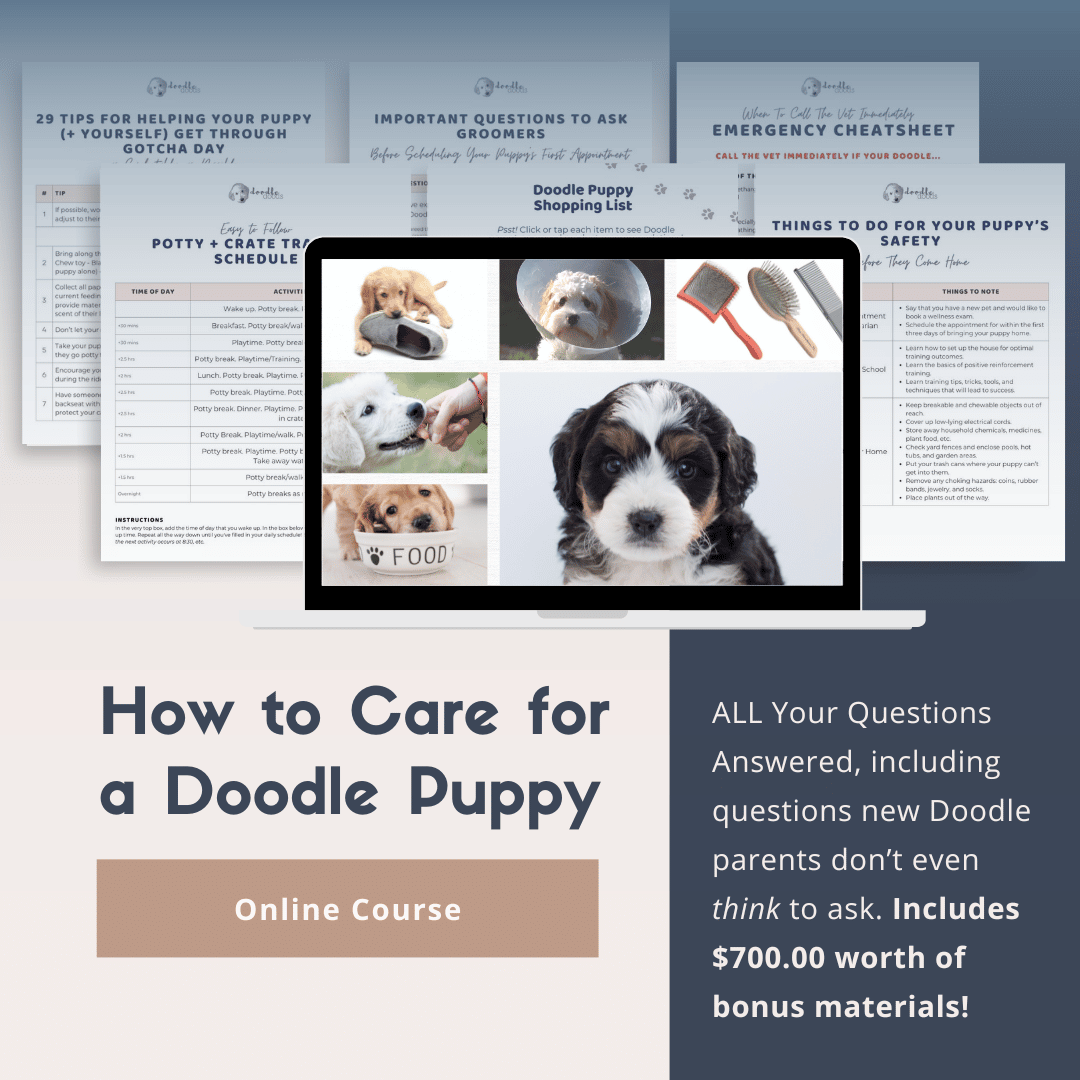
Perfect for first-time Doodle parents, get ALL your questions answered, including questions new Doodle parents don’t even think to ask.
Plus, get $700 worth of Bonus Materials for FREE, including:- Doodle Parenthood Community and Support Group ($190 value)
- Doodle Puppy Growth Tracker ($20 value)
- EMERGENCY Cheatsheet: When To Call The Vet Immediately ($50 value)
- HELP! Button ($145 value)
- And SO MUCH MORE!
The information on this page is for informational purposes only. It is not intended to be a substitute for qualified professional veterinary advice, diagnosis, or treatment. Always seek the advice of your veterinarian or other qualified animal health provider with any questions you may have.

